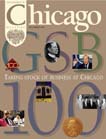The University of Chicago Magazine
December 1997

Irrational economic systems upset Johnson. In numerous writings he has pointed out that the last half century "differs from all previous history" because, while the world's population more than doubled, per capita food consumption simultaneously increased-an unprecedented combination. "Except for famines induced for political reasons, by war, or that resulted from enormous mismanagement of resources," he wrote last spring, "the poor people of the world were subjected to far less suffering from famines than ever."
This achievement has come about despite one form of resource mismanagement that he finds particularly irksome: the meddling of governments in agricultural economies. "The past century," he wrote in a 1996 essay, "has witnessed massive intervention in agricultural markets, ranging from the near elimination of markets in the planned socialist economies to a wide range of taxes and subsidies, price controls and trade manipulations in both developed and developing countries. The substantial majority of the farmers of the world have been harmed by the interventions that they faced, not a little but a lot. And the remainder gained very little unless they were owners of the land."
In a more recent paper, Johnson plays the same theme: "The agricultural trade issues of the future have the same source as those of the past half century-governmental interventions in the markets for farm products. Highly disruptive trade interventions-quantitative import quotas, including absolute prohibition of imports, variable levies and export subsidies-have been and are the means used to divorce domestic prices from international prices. International trade policies for farm products are adjuncts of domestic farm policies in nearly all countries. Until governments are willing to permit domestic prices of farm products to vary with international market prices, progress in trade liberalization will continue to be modest."
In this country, he concedes, things have lately been looking up. "American farmers today are essentially responding to the market, and responding very well. Most restraints are gone from the production of major crops, although the government is still paying farmers quite a lot of money." One government role he supports enthusiastically is investment in agricultural research, which he calls "probably the most important thing that has happened to agriculture in the last century and a half."
Nature as well as governments can intervene in agriculture, of course, as Johnson remembers from his boyhood. He was born in 1916 in Vinton, Iowa (population today 5,100), and came of age on a farm in the Dust Bowl years. "Milking cows at 10 below zero convinced me there were other things than farming to do," he says. So he headed to Iowa State College, then to the University of Wisconsin, then to the University of Chicago, then back to Iowa State to complete his Ph.D. and begin a teaching career.
Does a Dust Bowlsurvivor worry about that kind of disaster happening again? It could, acknowledges Johnson, because "the Dust Bowl was not made by man-plowing practices had very little to do with it. And if such drought were to happen today, the output declines would be very serious."
Less apt to keep him awake nights are worries about global warming. That's not because he doubts the alarms-although "the probability is certainly not unity"-but because he takes a wide-lens view of what will happen. "It will have negative implications in some parts of the world, positive in others. The northern half of the Northern-Hemisphere countries are going to gain from global warming: Canada, the northern part of the United States, the former Soviet Union, northern China. It's the tropics that are going to be hurt if it occurs."
